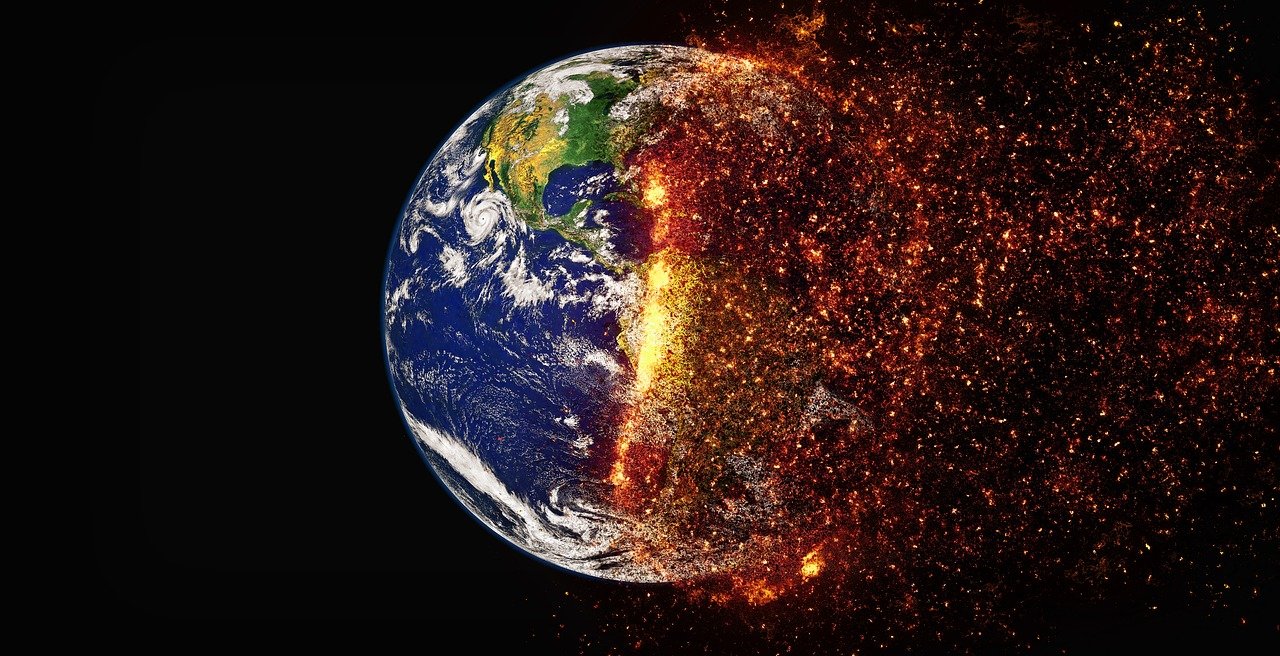By Sofía Segura Trejos – Student of International Relations
Climate alarmism is a hotly debated topic that often divides opinion, especially between scientists and environmentalists who are constantly analyzing the current status of the world regarding how climate change might affect us in coming times. The former refers to how the topic it’s been handled globally. Hulmes (2006) mentioned that “groups are using the term ‘catastrophic’ to describe climate change, along with descriptors such as ‘chaotic’, ‘irreversible’, and ‘rapid’ to alter the public discourse”. There are groups determined as anti-alarmists who stand against discourses that express that there is no solution for climate issues and how we have not gotten to the point of no return.
It is worth considering that, certainly, many of the reasons why we are currently facing a climate struggle come from the waste and mismanagement of resources, and this is directly related to human activity. As Trenberth (2018) has stated “the overall warming is caused by human activities, mostly through the changes in composition of the atmosphere through burning of fossil fuels (e.g., industry, electricity generation, driving cars, flying airplanes, space heating, etc.) and deforestation”. We must take a further look into what this means and the way it relates to our economic and political systems. People in the past had no idea that their activities (that were considered as important to develop their nations monetarily) where going to have such a big impact, speaking about times such as the Industrial Revolution during the 18th and 19th hundreds. And, on the other hand, our response after research found that our actions were indeed damaging the earth, it’s of great value.
The capitalist system maintains itself from over-production and overconsumption, from gains without responsibility. Before the 21st century, the private and public sector had not consolidated an international compromise regarding climate change, especially companies, which did not many had approached the topic on becoming more sustainable. This actively demonstrates that our take of actions it’s significantly new. Anti-alarmists claim that it’s irresponsible to portray the Earth’s status through fear to the people when they are given zero alternatives because that causes no reaction from their part and that’s when it becomes counterproductive (Risbey, 2008). To this, the other part (whom some would refer to as “climate alarmists”) have responded with the argument on the importance of having information on the matter that is of public domain, as well as providing alternatives at international, regional, national, and local levels to reduce the impact humans can cause both individually and collectively. Naturally, we have been taught through fear, whether it is to an individual, a situation, or an outcome. It is not wrong to acknowledge that our senses do respond to despair and it speeds up our ability to react to danger.
“Anti-Climate Alarmism” is also a dangerous discourse due to how many people who deny climate change have taken it to reveal against the take of action scientists propose, because they consider we are not in critical conditions yet. However, standing against the fact that we ought not only to consider, but to respond as soon as possible to change our lifestyles and how we systematically manage natural resources, just because floods and heavy heat waves are not occurring all over the earth right now, can be easily considered a very individualist position.
Weighing up both sides of the argument, as humans we must recognize how to respond to climate change through our individual responsibilities, as well as to demand action from the governments and companies, increasing policies that support and priories sustainable development. It is not about if the Earth will “die” in fifty or one hundred years, it’s about how we presently know this change can happen and the danger it’s clearly increasing. And it doesn’t matter if it affects us or not, we will have a responsibility with the generations to come.
MOXIE es el Canal de ULACIT (www.ulacit.ac.cr), producido por y para los estudiantes universitarios, en alianza con el medio periodístico independiente Delfino.cr, con el propósito de brindarles un espacio para generar y difundir sus ideas. Se llama Moxie - que en inglés urbano significa tener la capacidad de enfrentar las dificultades con inteligencia, audacia y valentía - en honor a nuestros alumnos, cuyo “moxie” los caracteriza.
References:
-
Hulme, M. (2006). Chaotic world of climate truth. BBC News hhttp://news.bbc.co.uk/2/hi/science/nature/6115644.stmi.
-
Risbey, J. S. (2008). The new climate discourse: Alarmist or alarming? Global Environmental Change, 18(1), 26–37. https://doi.org/10.1016/j.gloenvcha.2007.06.003
-
Trenberth, K. E. (2018). Climate change caused by human activities is happening and it already has major consequences. Journal of Energy & Natural Resources Law, 1–19. doi:10.1080/02646811.2018.1450895
